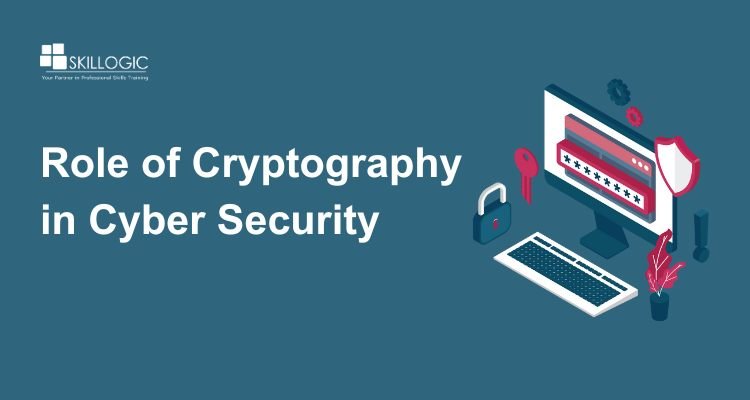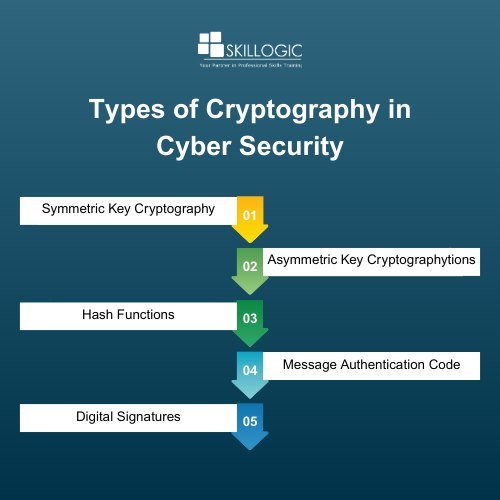The Role of Cryptography in Cyber Security
Explore the critical role of cryptography in cyber security, including its types, applications, and future trends in protecting data, identities, and digital communications.

As cyber threats grow in complexity and scale, securing digital information is more critical than ever. At the heart of modern protection strategies lies cryptography in cyber security, a foundational discipline that ensures confidentiality, integrity, and authentication of data across networks. Whether it’s protecting communication, digital identities, or online transactions, cryptography plays a central role in safeguarding the digital world.
Here, we explore the role of cryptography in cyber security, its core functions, and its impact on securing modern digital systems.
What is Cryptography in Cyber Security
Cryptography is the science of encoding and decoding information to keep it secure from unauthorized access. It involves converting readable data that is plain text into a scrambled format like cipher text, which can only be decoded by someone with the correct key. In the context of information security and cryptography, these techniques ensure that sensitive data remains protected both in transit and at rest.
Refer these articles:
- Authentication vs Authorization: Key Differences
- What is Spoofing in Cyber Security and How to Protect Against It
- Top Mobile Security Tips in 2025 to Protect Your Smartphone
Why Cryptography is important in Cyber Security
The importance of cryptography in cyber security cannot be overstated. It acts as a first line of defense against threats such as data breaches, identity theft, and surveillance. Some key benefits include:
- Confidentiality – ensures only authorized users can access data.
- Integrity – verifies that data hasn’t been altered during transmission.
- Authentication – confirms the identity of users and systems.
- Non-repudiation – prevents users from denying their actions or messages.
With the growing sophistication of cyber threats, organizations rely heavily on cryptographic techniques in cyber security to protect their infrastructures, communications, and customer data. Thales Data Threat Report found that 50% of organizations reported an increase in encryption adoption across cloud environments to secure sensitive workloads.
Types of Cryptography in Cyber Security
Here are the key types of cryptography in cyber security, based on how data is encrypted, secured, and verified:

1. Symmetric Key Cryptography
This method uses a single key for both encryption and decryption, making it fast and efficient for securing large volumes of data. It is commonly used in file encryption, VPNs, and internal communication systems. Examples include AES (Advanced Encryption Standard) and DES (Data Encryption Standard).
2. Asymmetric Key Cryptography
Also known as public key cryptography, this technique uses two keys: a public key to encrypt and a private key to decrypt. It allows secure communication over untrusted networks without key sharing. RSA and ECC are popular examples used in email encryption and digital signatures.
3. Hash Functions
Hashing involves converting data into a fixed-length hash value that cannot be reversed. It is mainly used to ensure data integrity, such as verifying file transfers or password storage. Common algorithms include SHA-256 and SHA-3.
4. Message Authentication Code
MACs are used to verify the authenticity and integrity of a message using a shared secret key. They help confirm that data hasn't been tampered with during transmission. HMAC is a widely used implementation in secure communications like TLS and IPsec.
5. Digital Signatures
Digital signatures validate the authenticity of a sender and ensure that the message content remains unchanged. Based on asymmetric cryptography, they are widely used in document signing, SSL certificates, and blockchain. They offer non-repudiation and data verification.
Real-World Applications of Cryptography
In practical terms, information security and cryptography work hand-in-hand to safeguard sensitive data and digital infrastructure across a wide range of industries:
Banking and Finance: Cryptographic protocols are used to encrypt online transactions, secure ATM communications, and ensure the privacy of digital banking systems. Secure Socket Layer (SSL)/Transport Layer Security (TLS) and tokenization also help protect customer data during transactions.
- Healthcare: Encryption is essential for maintaining the confidentiality of electronic health records, securing telehealth platforms, and complying with data protection regulations like HIPAA.
- E-commerce: From securing login credentials to encrypting payment gateways, cryptography enables safe online shopping experiences. Digital certificates authenticate websites and protect users from phishing attacks.
- Government: Cryptography supports secure communication between government agencies, encrypts classified data, and enables digital signatures for secure document verification and e-governance services.
- Email and Messaging Apps: Applications like WhatsApp, Signal, and ProtonMail rely on end-to-end encryption to prevent unauthorized access and ensure private communication.
Reflecting this widespread adoption, Statista reports that over 82% of global web traffic is now encrypted using TLS, up from 60% just five years ago. This remarkable increase underscores the growing reliance on public key cryptography in real-world systems to secure online communications and protect digital identities.
Every time you access a secure website, enter a password, or complete a two-factor authentication step, you’re depending on cryptography in cyber security to protect your identity, privacy, and digital interactions.
Refer these articles:
- How to Become a Cyber Security Expert in Chennai
- Tips for Selecting the Top Cyber Security Institute in Chennai
- Building a Cyber Security Career in Chennai: Key Skills, Salaries, and Tips
Future of Cryptography in Cyber Security
As we advance into an era of quantum computing and AI-driven systems, the landscape of cryptographic techniques in cyber security is set for significant transformation. Traditional encryption algorithms like RSA and ECC may no longer be secure in the face of quantum attacks, leading to the urgent development of post-quantum cryptographic (PQC) standards that can withstand the computing power of future quantum systems. Over 60% of large enterprises will mandate the use of post-quantum cryptography (PQC) in their IT environments to prepare for quantum computing threats.
According to a report by Fortune Business Insights, the global quantum cryptography market is projected to grow to USD 1,617.5 million by 2032, underscoring the rising demand for advanced encryption technologies across public, private, and defense sectors.
Looking ahead, several key changes are shaping the future of cryptography:
- Adoption of post-quantum algorithms: Organizations will begin transitioning to cryptographic systems that are quantum-resistant, following guidance from bodies like NIST.
- Integration with AI systems: Cryptographic protocols will be increasingly embedded within AI models to ensure model integrity, secure data exchange, and protect against adversarial manipulation.
- Use of zero-trust architectures: Cryptography will play a central role in zero-trust frameworks, ensuring continuous authentication and encryption across distributed environments.
- Expansion of blockchain and decentralized identity: Cryptography will continue to underpin blockchain ecosystems, enabling secure smart contracts, tokenization, and decentralized digital ID systems.
Additionally, information security and cryptography will become more automated, with cryptographic lifecycle management tools helping organizations manage keys, certificates, and compliance more efficiently.
In this current scenario, cryptography in cyber security is no longer just a protective measure, it's a forward-looking strategy. From securing national critical infrastructure to building trust in digital platforms, cryptography will be central to every future-ready security framework. Organizations must proactively adapt to emerging standards and technologies to stay secure in an increasingly complex threat landscape.
In short, cryptography in cyber security is essential to protecting data, verifying identity, and maintaining trust in digital systems. As technology advances and threats evolve, mastering cryptographic techniques will be critical for individuals and organizations aiming to build resilient, secure infrastructures.
If you're looking to start or grow your career in cyber security, choosing the right city and training program plays a crucial role in shaping your future. Chennai, a leading IT and technology hub in India, has emerged as a prime location for cyber security education. With a strong ecosystem of multinational tech companies, premier academic institutions, and supportive government initiatives, Chennai stands alongside cities like Bangalore, Hyderabad, Pune, Ahmedabad, and Coimbatore as a top destination for building a career in this field.
Opting for an offline cyber security course in Chennai gives students the advantage of hands-on learning through interactive classroom sessions and real-time lab exercises. These instructor-led programs provide practical exposure to current threat scenarios and help learners develop the skills required to defend against cyber attacks effectively.
SKILLOGIC’s Cyber Security Professional Plus Program is now being offered in Chennai, featuring a forward-looking curriculum designed to meet modern security demands. The program covers essential areas such as ethical hacking, network defense, threat detection, and the application of big data in cyber security. It is accredited by NASSCOM FutureSkills and IIFIS, ensuring industry relevance and credibility.
Participants gain access to live instructor-led classes, 24/7 cloud-based lab environments, and globally recognized certifications. Whether you're a beginner stepping into cyber security or a professional aiming to advance your capabilities, this cyber security course in Chennai equips you with the technical knowledge and real-world insight needed to succeed in today's digital-first world.

0
287